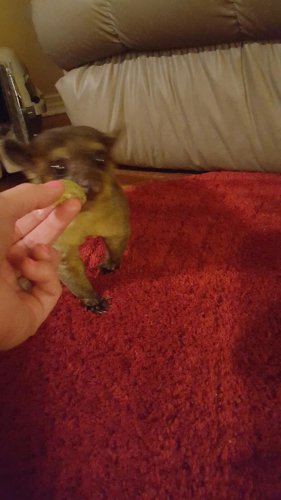Nicholasdeaan
Avid Member
So I'm getting a kinkajou in about a week and a half. I'm very excited and curious. My girlfriend and I have been researching for months and months now. Just haven't found one we can afford. We came upon one for 900$ and so I thought I would jump on it. Anyone here have any experience with these guys? I'm getting a female by the way. Any tips and advice is GREATLY appreciated. I know they don't do well with rehoming but I can handle that part. Who all here has one? 


